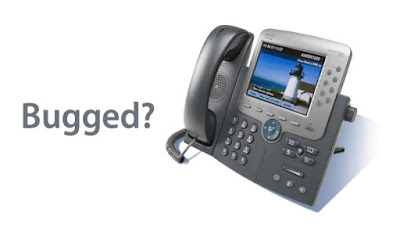1. Dual cyanide gun: This gun fires a dual cyanide charge that can kill a person almost instantly. A KGB officer, Bogdan Stashinsky, assassinated two Ukrainian dissidents who were living in Germany by hiding the weapon inside a rolled-up newspaper.
2. Dead drop spy bolt: The dead drop spy bolt was hollow on the inside so that men and women could carry secret messages safely to others. If someone searched the pockets of these people no one would expect anything dangerous about a bolt.
3. Decoder lock picks: These lock picks were generally used for some of the tougher, more sophisticated locks. The devices proved to be real handy for those breaking into enemy quarters.
4. Lipstick gun: Women were some of the most successful spies during the war. They were able to carry around this little 4.5 millimeter single-shot gun in the 1960s. Like the spy bolt, it seemed harmless and was easy to conceal.
 5.Telephone monitoring equipment: Spies
carried this around and hacked into telephone conversations. The
equipment includes a batter, stethoscope and rubber bands.
5.Telephone monitoring equipment: Spies
carried this around and hacked into telephone conversations. The
equipment includes a batter, stethoscope and rubber bands.6. Disappearing ink pen: If someone needed to send a secret message, they would resort to writing it with the disappearing ink. That way, if they were caught with the message only a blank piece of paper would be seen. In order to reveal the hidden message on the paper, the recipient would’ve needed vinegar and a heat source.
7. Document photographing: If a spy found useful documents, they would photograph the papers for their records without actually removing them. The piece of equipment they used had two long lights on both sides and a cross member the camera screws on to for straight and steady photos.
8 .Glove pistol: Although the glove pistol was originally made by the United States Navy, it was eventually copied by the KGB. You had to push the plunger into the enemy’s body for it to shoot. The glove is inconspicuous, especially if a jacket covers the pistol part on top of the glove.
9. Key copying kit: This small kit came in a small, convenient tin with a brick of clay to be used for copying any key the soldiers or spies might need.
10. Hollow coin: Spies used hollowed-out coins to transfer film to others. If stopped, no one would suspect a coin to be useful in passing information from person to person.
11. Camera hidden in the coat jacket: The person wearing the jacket would have a little button on the inside of the pocket to click whenever they needed to take a photo.
12. Pen camera: All the spy needed to do was click the top of the ball point pen and they would take a photo. Once again, thanks to the item being so inconspicuous, it was easy to bring around without looking suspicious.
13. A gun case: A special kind of silver gun case was able to hide a larger gun such as the AK-47.
14. Cufflinks: These 1950s cufflinks had small holes in them for hiding microfilm.
15. Button compass: A majority of spies went to foreign countries during the time of the Cold War. These compasses were hidden in the buttons on their jackets in case they got lost or needed to go in a different direction.
16. Shoe transmitting device: The easiest way to keep track of spies was a transmitting device on the inside of a shoe heel. The men’s shoe heel was thick enough to hold all of the necessary parts of the device.
17.The passive bug:These bugs were planted on the inside of a large wooden replica of the Great Seal of the United States. The Great Seal was given by the Soviets to the U.S. Ambassador to the USSR in 1945. The bug wasn’t discovered until eight years later.
18. Parachuting/civilian shoes: Spies had to parachute from planes, and they had to wear special boots. But they also had to blend into the crowd. This resulted in zip-off boot tops on regular civilian shoes. All the spies would have to do after jumping was zip off the boot part.
19. Steineck ABC wristwatch camera: The wristwatch was made in 1949 by the Germans but was used by the KGB for more than telling time.On the the bottom part of the watch there is a shutter and buttons for taking photos.
20. Poison dart umbrella: This umbrella was actually used to kill Bulgarian dissident writer Georgi Markov in London in 1978. Markov was waiting for the bus to take him to work when was murdered with a sting in the back of his leg. He died three days later in the hospital of ricin poisoning. His autopsy showed a small hole in the back of his leg.














































